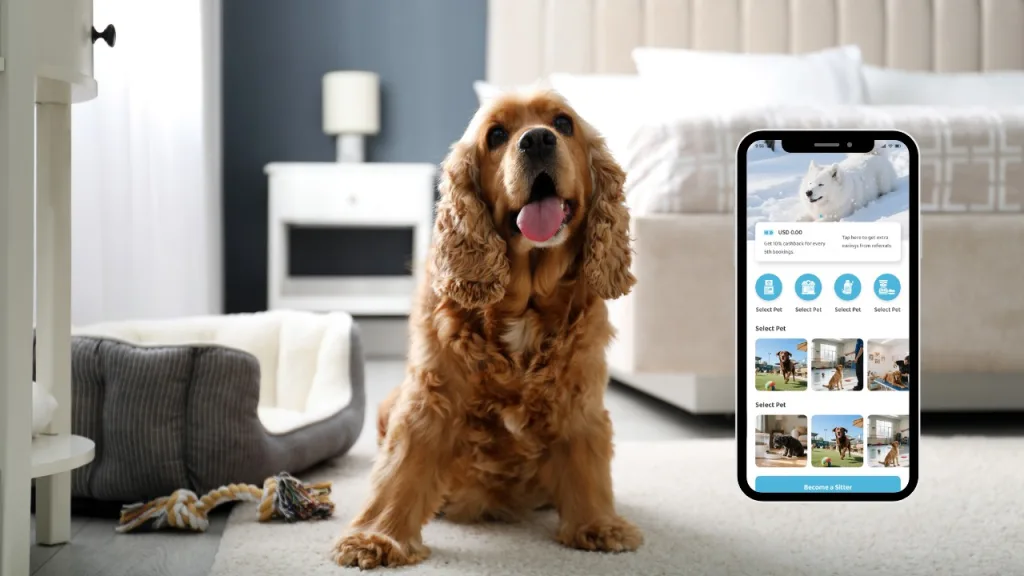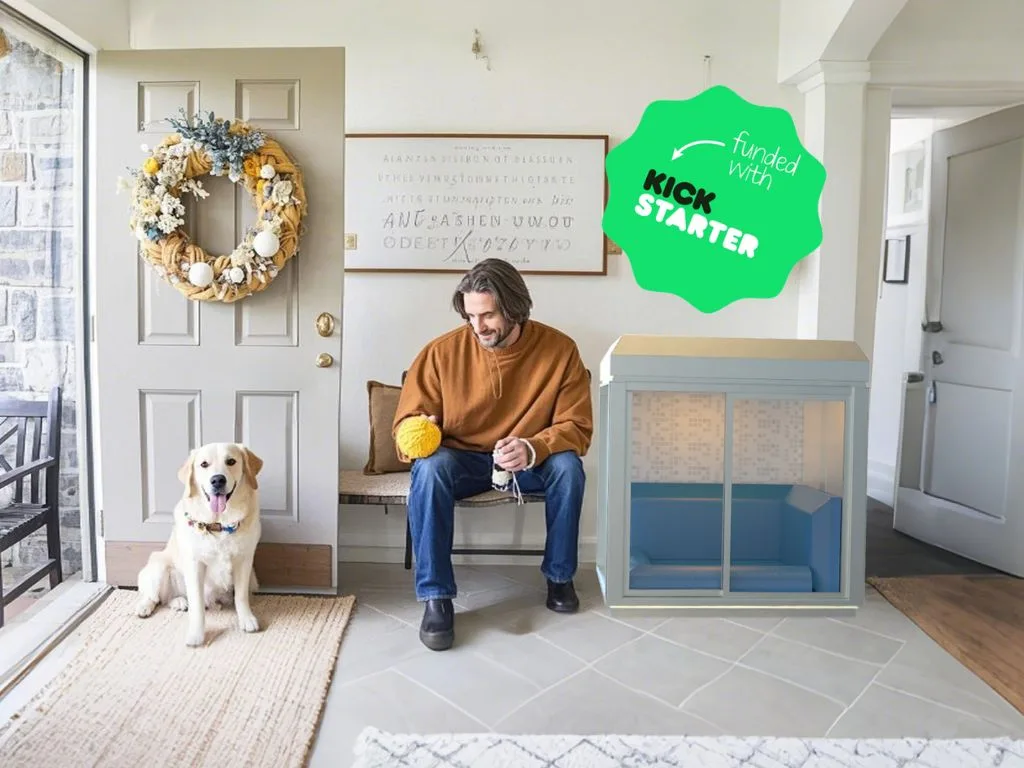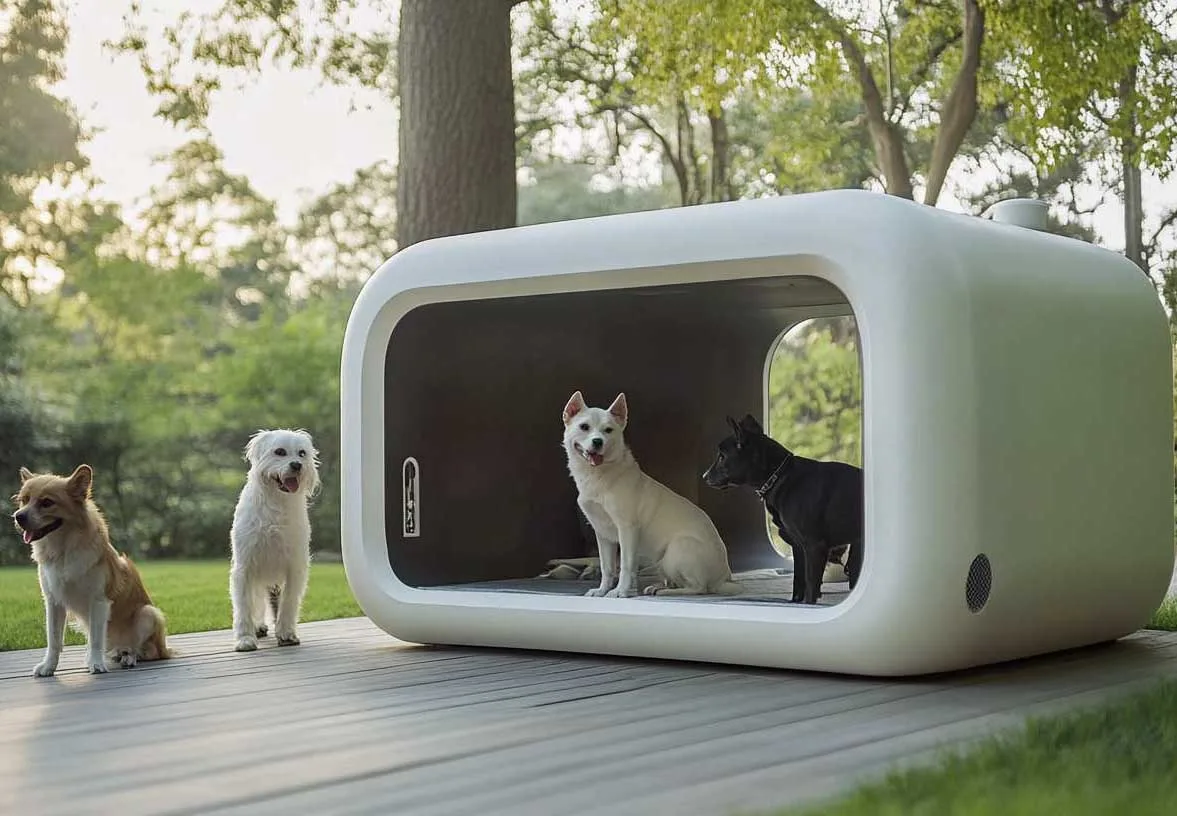SPH
2025.06.30
209
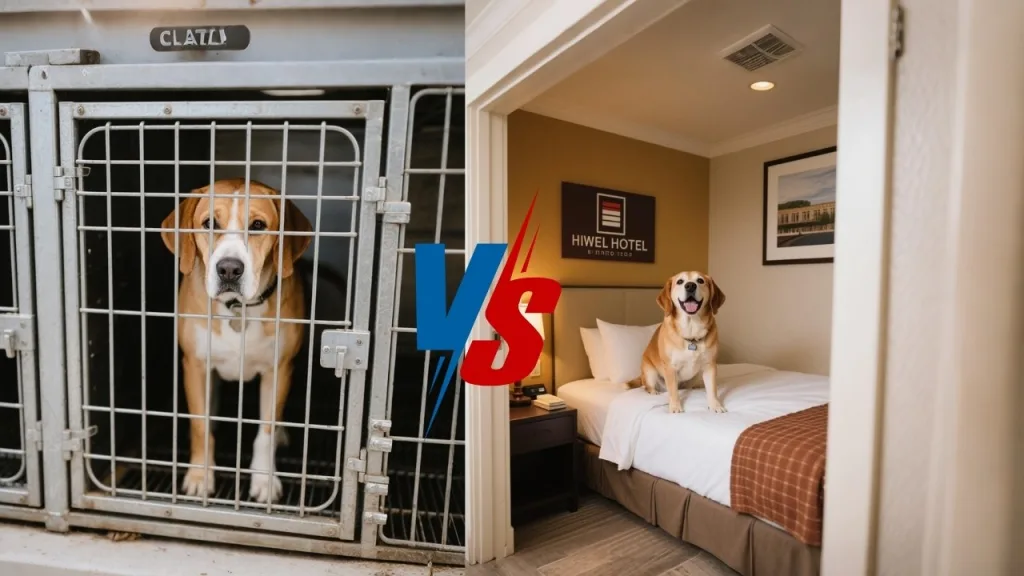
Every time you travel, do you worry about your furry friend’s well-being? Is it comfortable? Will it receive proper care? While both dog hotels and traditional boarding seem like solutions, the differences are significant. Let’s explore why more pet parents are turning to dog hotels as their top choice.
Traditional Boarding: Basic Care
Many traditional dog boarding facilities concentrate on essential needs, such as feeding, shelter, and occasional walks. In suburban areas, these facilities often employ a “wait-at-home” model and seldom address the emotional needs or behavior training of the dogs.
Dog Hotels: Comfort and Health
Luxury dog hotels provide high-quality living experiences. Inspired by the trend of pet humanization, many American dog hotels are applying behavioral science to enhance canine wellness. In cities like Los Angeles and New York, trained staff create customized play and social plans. Reserved dogs get private attention and calm environments. Some hotels even offer on-site pet therapists to ease separation anxiety.
Traditional Boarding: Limited, Confined Spaces
Many traditional boarding facilities confine dogs to small cages, limiting movement. Hygiene varies. According to the American Pet Products Association, nearly 30% of pet parents are concerned about the cleanliness and comfort of their pets.
Dog Hotels: Comfortable and Spacious Rooms
A luxury dog hotel feels like a second home. Options range from cozy private rooms to large family-style suites with climate control, orthopedic beds, and indoor play areas. Each room includes designated rest, dining, and activity zones, ensuring a comfortable stay.
Staff Qualifications: Dog hotels require staff to complete extensive training. Many U.S. hotels demand certification in pet CPR and first aid. High-end dog hotels may also require nutrition and behavior credentials. In contrast, traditional facilities often lack formal training.
Personalized Services: Dog hotels design custom meal plans based on breed, age, and health. Daily health checks include temperature monitoring and behavior tracking. Grooming services such as haircuts, nail trims, and spa treatments are commonly offered.
Dog Hotels: Engaging Activity Plans
These facilities feature dog-friendly play zones filled with balls, frisbees, and chew toys. Activities are tailored for different energy levels. Active dogs enjoy agility areas, while calmer dogs can relax in quiet zones with soft music.
Traditional Boarding: Limited Stimulation
Due to space and staff constraints, traditional boarding often lacks enrichment. Dogs may spend most of the day in cages, leading to stress and anxiety. Studies show long-term confinement harms mental and physical health.
Dog hotels: Advanced Safety Measures
Dog hotels use top-tier security systems and 24/7 surveillance cameras. Pet parents can monitor their dogs remotely via an app. Furthermore, they enforce strict access controls to limit entry to authorized staff and approved pet parents. For example, Royal Canine Resort equips staff with secure ID badges and mandates rigorous visitor registration.
Traditional Pet Boarding: Security Gaps
Traditional pet boarding facilities often lack stringent security oversight compared to dog hotels. Some install only a few cameras covering limited areas, increasing the risk. Many maintain relaxed entry procedures, making escapes or unauthorized removals more likely. Moreover, these gaps elevate the chance of dogs running away or being taken by unauthorized individuals.
Dog hotels partner with local veterinarians and stock emergency kits with medicine, bandages, and tools. Staff are trained to manage choking, injuries, and other incidents. In serious cases, dogs are taken immediately to a nearby pet hospital.
Traditional Boarding: Lacking Crisis Support
Many traditional facilities have limited emergency protocols or insurance. Delayed care can worsen conditions, and unexpected vet bills often fall on the pet parent.
Dog Hotels: Premium Quality, Worth the Price
Luxury dog hotels are more expensive but offer top-tier care, expert staff, and tailored services. In major cities, rates typically range from $50 to $150 per night, depending on room type and amenities.
Traditional Boarding: Budget-Friendly but Basic
Traditional facilities cost less, often $20 to $40 per night. However, the reduced price reflects limited services and outdated facilities.
Dog Hotels: A Healthier Investment
Despite higher upfront costs, dog hotels reduce stress-related illnesses and behavior problems. Long-term benefits include fewer vet visits and better behavior.
Traditional Boarding: Unexpected Costs May Arise
Initial savings may vanish if your dog becomes sick or anxious. Emergency treatment can outweigh the cost saved on cheap boarding.
Special Health Requirements: Senior dogs may need regular medication or a quiet space. Something dog hotels handle with ease. Puppies thrive on stimulation, which dog hotels are well-equipped to provide.
Breed and Temperament: Anxious dogs benefit from individual attention and calming environments at a dog hotel. For more relaxed dogs, the choice often depends on travel duration and budget.
For short trips, traditional boarding can be a practical and cost-effective option. However, for extended travel or frequent trips, the comprehensive care provided by a luxury dog hotel is a better fit, especially with 24-hour dog daycare and on-call staff available.
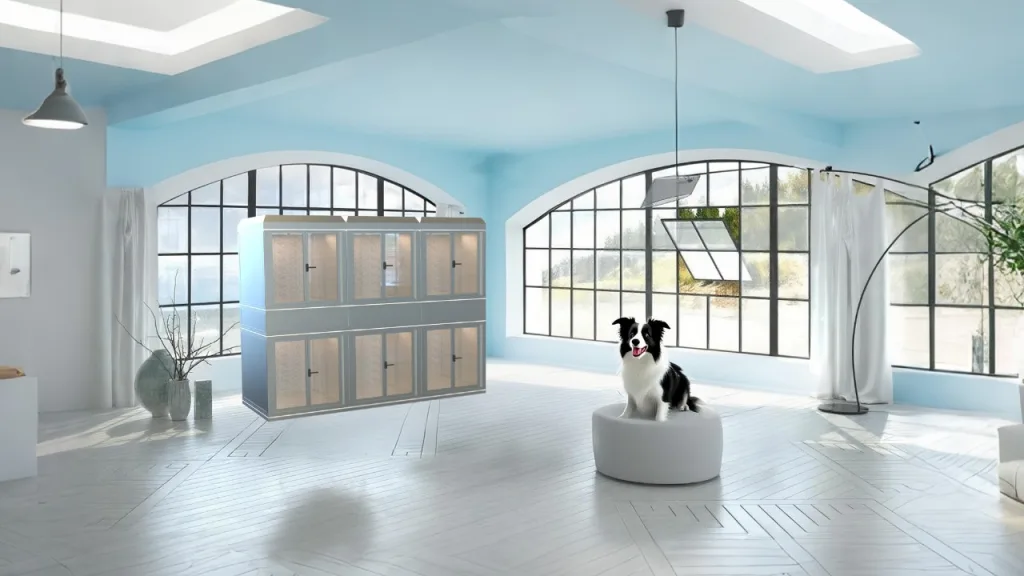
SPH’s two-level modular pet suites expand vertical space. Compared to traditional single-level units, they increase capacity by over 50% while maintaining comfort and privacy.
